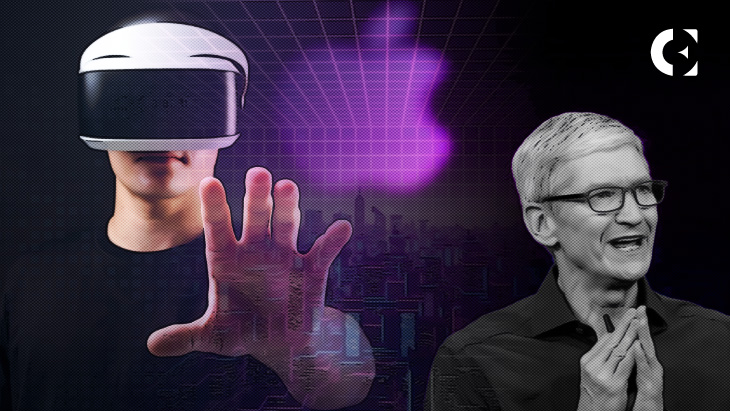- Apple CEO Tim Cook believes Augmented Reality will surpass the Metaverse.
- Cook is “not sure” about the common people’s understanding of the Metaverse.
- The CEO considers AR a “profound technology” that will have a big impact.
During a recent interview, Apple Inc. CEO Tim Cook predicted that AR would overtake both the metaverse and Virtual Reality (VR) as the most important technological development in the near future.
Speaking with Dutch publication Bright on Friday, the Apple CEO said he thinks “it’s crucial for people to comprehend what something is,” adding that he’s “not sure” about the common public’s understanding of the metaverse.
Despite the growing popularity of VR platforms where users may socialize, do business, shop, and play games while immersed in a 3D environment, Apple has not yet announced any intentions for the metaverse.
These simulated environments already exist in some shape or form, but numerous tech giants are hard at work creating the technology and software required for individuals to devote considerable time and resources to the “metaverse.”
It’s something you can really immerse yourself in. And that can be used in a good way. But I don’t think you want to live your whole life that way,” Cook emphasized.
Furthermore, Cook is an ardent fan of augmented reality, and Bloomberg claims that Apple is working on an augmented reality headset that could be released in 2023. Cook told Bright that augmented reality’s potential “will go much, much further” than its current uses.
Cook considers AR a “profound technology” with far-reaching consequences. He continued:
Imagine suddenly being able to teach with AR and demonstrate things that way. Or medically, and so on. Like I said, we are really going to look back and think about how we once lived without AR.
Cook isn’t the only big tech player who’s not a fan of the metaverse. Snap CEO Evan Spiegel has previously described the concept of a metaverse as “ambiguous and hypothetical.” He also advocated augmented reality (AR), in which computer-generated sensory input is placed onto a user’s view of the physical environment.
Disclaimer: The information presented in this article is for informational and educational purposes only. The article does not constitute financial advice or advice of any kind. Coin Edition is not responsible for any losses incurred as a result of the utilization of content, products, or services mentioned. Readers are advised to exercise caution before taking any action related to the company.










